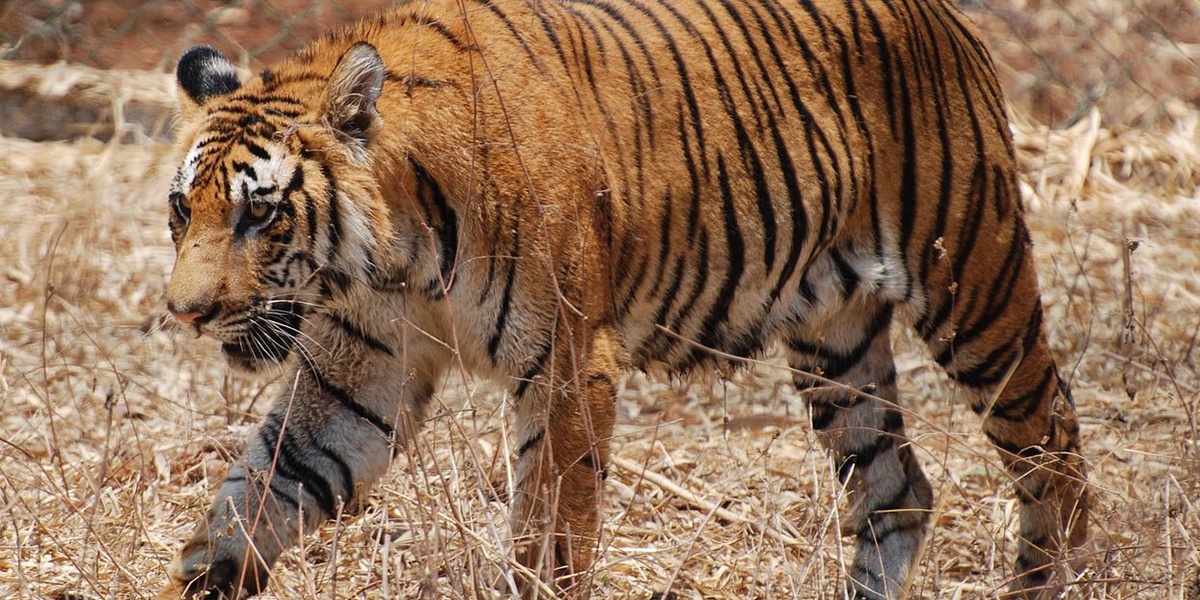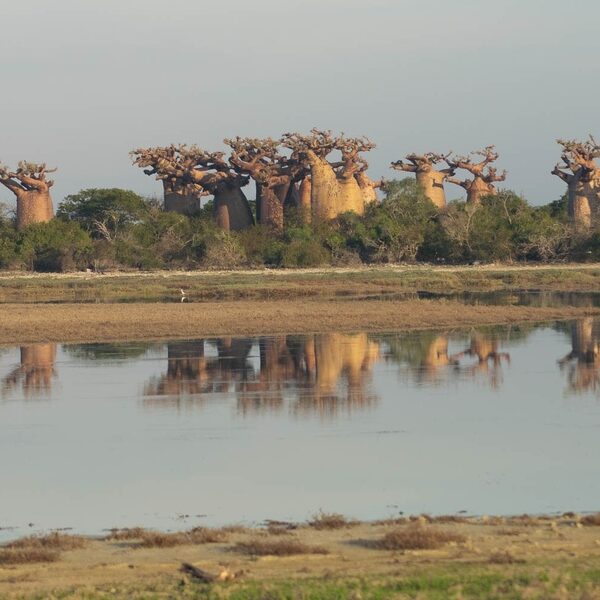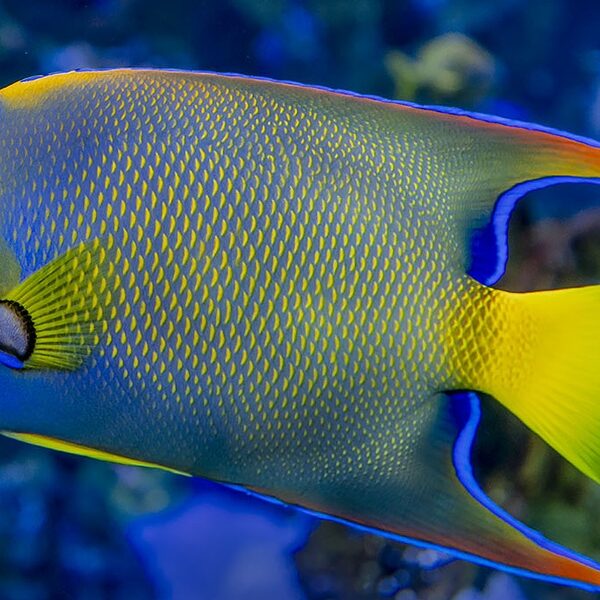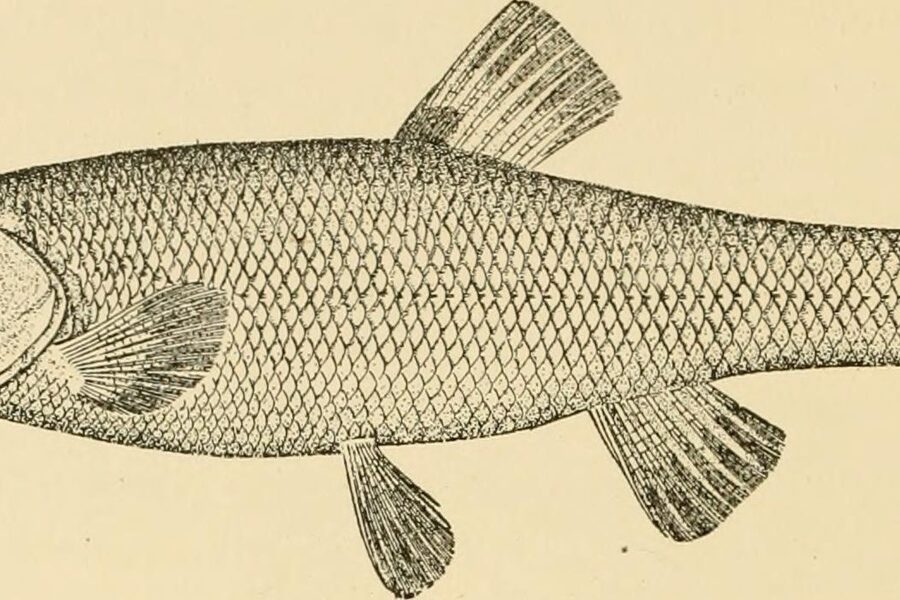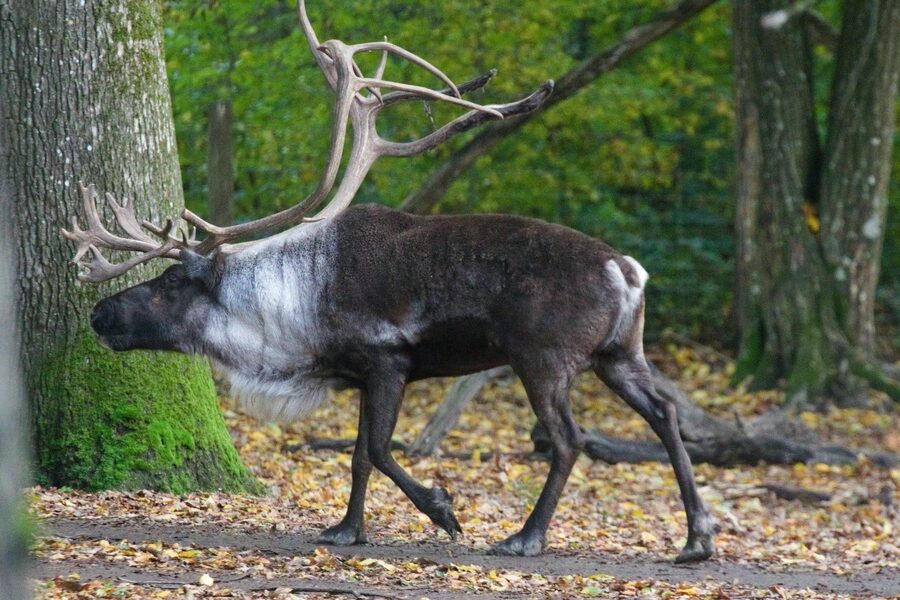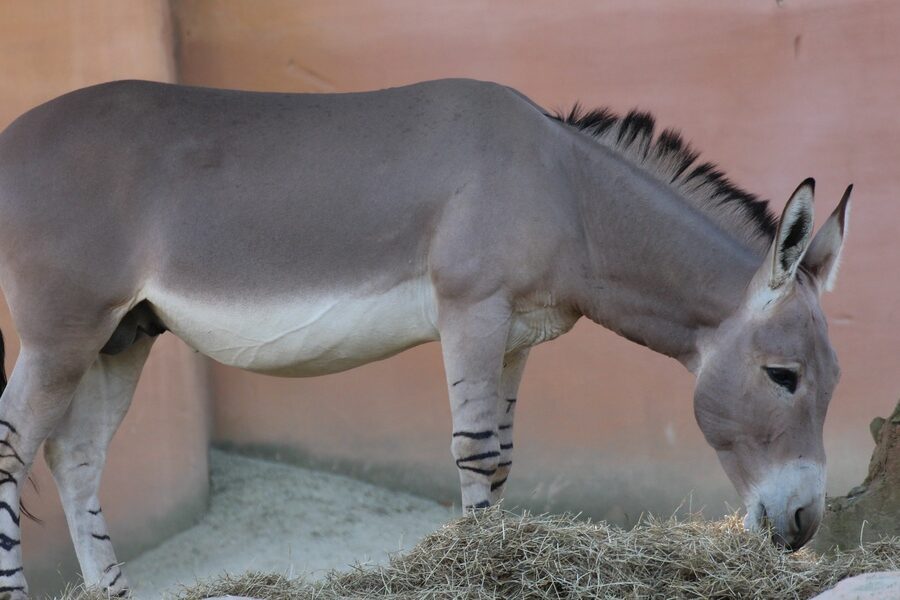Across islands, forests and scrub, orange coloration turns up in surprising places — from sunlit canopies to coastal dunes. Color can serve for camouflage, mating signals or simply be a quirk of local evolution, and it often highlights species that are uncommon and regionally limited.
There are 14 rare orange animals, ranging from Bornean Orangutan to Tapanuli Orangutan. For each entry you’ll find the columns Scientific name,Primary range,Typical size (cm); you’ll find below.
How rare are these orange animals in the wild?
Rarity varies: some species have tiny, declining populations and restricted ranges, while others are naturally uncommon but stable. Threats like habitat loss, hunting and climate change make population counts unreliable in many places, so conservation status often ranges from vulnerable to critically endangered depending on the species.
How can I help protect species like the Bornean and Tapanuli orangutans?
Support habitat protection and sustainable land use by choosing products that avoid deforestation, donate or volunteer with reputable conservation groups, and favor responsible ecotourism that funds local conservation and community livelihoods — these actions reduce pressures on orangutan habitats and benefit other rare orange species too.
Rare Orange Animals
| Common name | Scientific name | Primary range | Typical size (cm) |
|---|---|---|---|
| Golden Lion Tamarin | Leontopithecus rosalia | Brazil | 26 |
| Sumatran Orangutan | Pongo abelii | Indonesia (Sumatra) | 140 |
| Bornean Orangutan | Pongo pygmaeus | Indonesia, Malaysia (Borneo) | 140 |
| Tapanuli Orangutan | Pongo tapanuliensis | Indonesia (Sumatra) | 135 |
| Red Panda | Ailurus fulgens | Eastern Himalayas, Southwestern China | 60 |
| Golden Langur | Trachypithecus geei | Bhutan, India | 65 |
| Sun Parakeet | Aratinga solstitialis | Brazil, Guyana | 30 |
| Golden Poison Frog | Phyllobates terribilis | Colombia | 5 |
| Panamanian Golden Frog | Atelopus zeteki | Panama | 4.5 |
| Golden Mantella | Mantella aurantiaca | Madagascar | 2.5 |
| Red Handfish | Thymichthys politus | Australia (Tasmania) | 8 |
| Kaiser’s Spotted Newt | Neurergus kaiseri | Iran | 12 |
| Monarch Butterfly | Danaus plexippus | North America | 10 |
| Dhole | Cuon alpinus | Asia | 100 |
Images and Descriptions
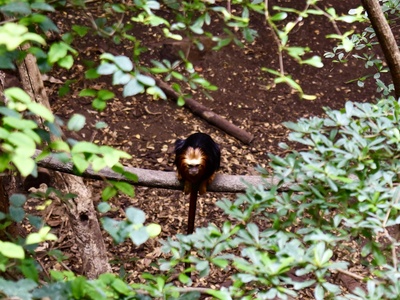
Golden Lion Tamarin
This tiny, brilliant orange primate is an icon of conservation. Listed as Endangered, its population was once below 200 due to severe habitat loss in Brazil’s Atlantic Forest. Intensive conservation efforts have helped it rebound, but it remains incredibly rare in its tiny native range.
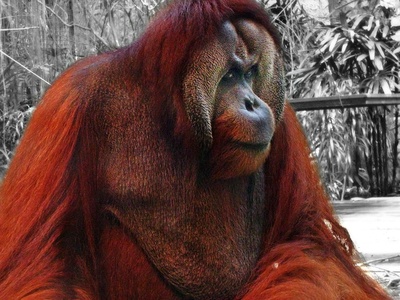
Sumatran Orangutan
With long, shaggy orange-red fur, this great ape is found only in the forests of Sumatra. It is Critically Endangered, with its population decimated by deforestation for palm oil plantations and logging, pushing this intelligent primate to the absolute brink of extinction.
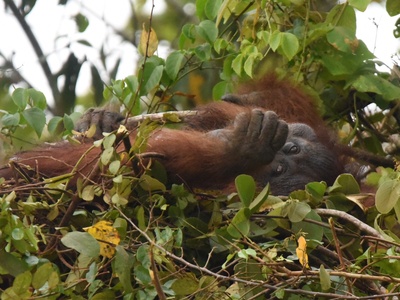
Bornean Orangutan
Slightly darker and stockier than its Sumatran cousin, the Bornean Orangutan shares its fiery orange coat and Critically Endangered status. Its survival is severely threatened by habitat destruction from logging, fires, and the expansion of agriculture across the island of Borneo.
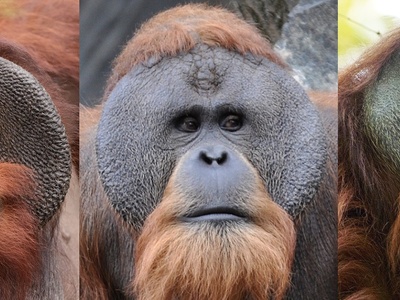
Tapanuli Orangutan
The rarest great ape on Earth, the Tapanuli Orangutan was only identified as a distinct species in 2017. With frizzier, cinnamon-orange fur, its tiny, isolated population of fewer than 800 individuals is Critically Endangered due to extreme habitat fragmentation.
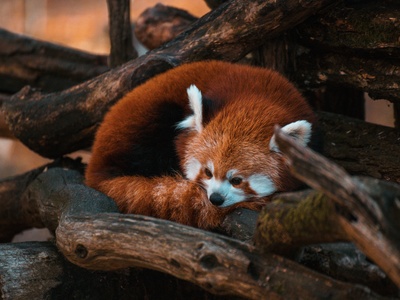
Red Panda
Often called the “fire fox” for its rusty, orange-red coat, this unique mammal is the only member of its family. It is listed as Endangered, with its population declining due to habitat loss and fragmentation of the mountain forests where it feeds on bamboo.
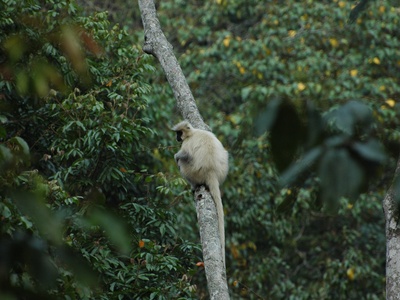
Golden Langur
This Old World monkey has a stunning coat that ranges from creamy-gold to a brilliant orange-red. Found in a very small region of western Assam, India, and Bhutan, it is Endangered due to its highly restricted range, which is threatened by ongoing habitat degradation.
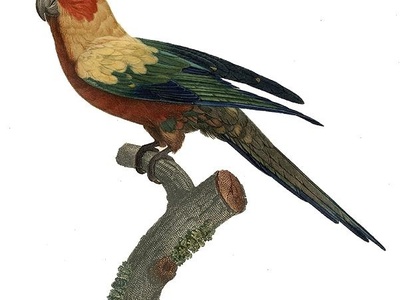
Sun Parakeet
A spectacularly bright bird with plumage of golden-orange and yellow, the Sun Parakeet is a dazzling sight. Unfortunately, its beauty has made it a target. It is now Endangered primarily due to intense trapping for the pet trade, which has devastated its wild populations.
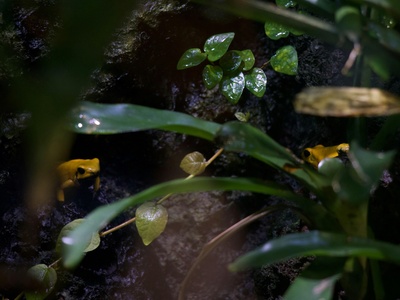
Golden Poison Frog
Despite its small size, this is one of the most toxic animals on Earth. Its brilliant orange color (one of several wild morphs) warns predators of its lethality. It is Endangered because it lives in a tiny, specific area of Colombian rainforest threatened by deforestation.

Panamanian Golden Frog
This famous, vibrant yellow-orange amphibian is a national symbol of Panama. It is Critically Endangered and now believed to be Extinct in the Wild, wiped out by the devastating chytridiomycosis fungal disease. It survives today only in captive breeding programs.
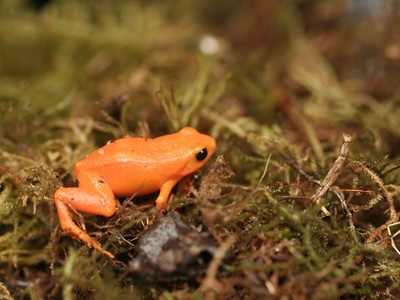
Golden Mantella
This tiny, jewel-like frog is a uniform and brilliant reddish-orange. It is Critically Endangered, surviving in only a few small, fragmented forest patches in eastern Madagascar. Its habitat is under constant threat from logging, agriculture, and human encroachment.
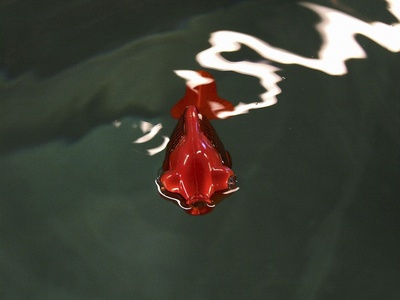
Red Handfish
Arguably the world’s rarest fish, this bizarre orange-red creature “walks” on the seafloor using its pectoral fins. It is Critically Endangered, with the entire known population of fewer than 100 adults confined to just two tiny reefs off the coast of Tasmania.
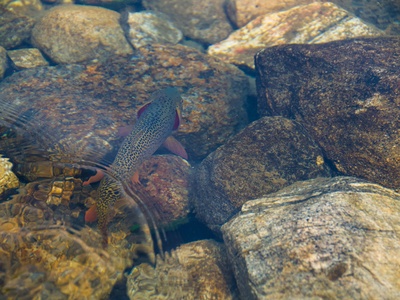
Kaiser’s Spotted Newt
Also known as the Luristan newt, this stunning amphibian has a dramatic black and white pattern broken by a bright orange-red stripe on its back and belly. It is Critically Endangered due to its extremely limited mountain stream habitat and illegal collection for the pet trade.
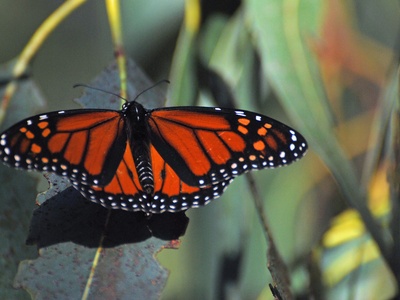
Monarch Butterfly
The iconic migratory monarch, famous for its black-veined orange wings, is now an Endangered phenomenon. Its spectacular multi-generational migration is threatened by the loss of milkweed (its only larval food) and the degradation of its overwintering forests in Mexico and California.
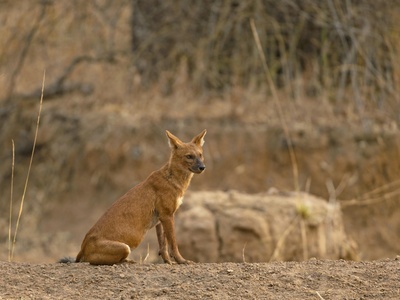
Dhole
This Asiatic wild dog has a reddish-orange coat that varies by region. Dholes are highly social pack hunters now listed as Endangered. Their populations are fragmented and declining across Asia due to habitat loss, a decrease in their prey base, and disease from domestic dogs.
